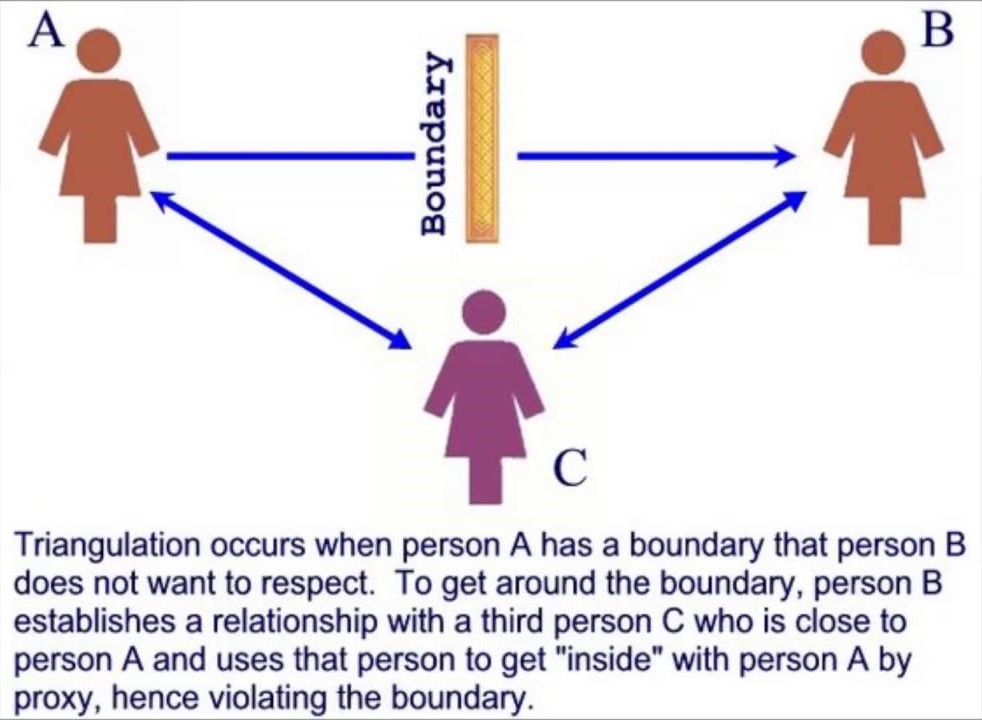March 2023

As it is written, God’s name is blasphemed among the Gentiles because of you.
Romans 2:24
I Am Done
I am done with belonging to any church congregations. I still believe in and follow God and the Bible, but churches are another matter entirely. The reason is very simple. Congregations today are filled with toxic and malignant people. Every congregation in which I have been a member has had a significant concentration of toxic people. They were usually a smaller percentage, but the negative effects of these people were always far greater than their numbers would suggest. Most of this toxicity fell into the categories enumerated below. There are more, but I have found these to be the most prevalent. Some people exhibit multiple categories.
- Nosy busybodies – always gossiping to you about others while mining you for information that they can use later to gossip about you. They are also professional eaves-droppers and advice givers, cloaking it all in a religiously helpful guise. I cannot count the number of times this has been the pastor’s wife or family member.
- Arrogant and self-righteous – these people are better representatives of [insert faith] than you or anyone else in the congregation. They love giving spiritual advice. Everything you discover, they have heard it before and have already been doing it better than you or discarded it as old years ago. Every conversation with them is as though they were speaking to a naive 3-year-old (you). They’ve been there, done that, and own every T-shirt. You, on the other hand, do not, have not, and will not.
- Controlling and manipulative – one of the most malignant. They seek to use you to get something from you that you otherwise would not give. Money, time, adoration, even your commitment as a spouse. They also love giving spiritual advice, but it has the goal of controlling and using you. The congregation leadership often falls into this category.
- Hypocrite posers – these are the people who post pious Bible verses all over their social media, and then do the exact opposite in their lives and to other people. The church version of virtue signaling. They attend church to feel superior to those around them and will signal their phony virtues with a thousand-watt semaphore.
- Playing religion – this is a fun game for them. They pick and choose what parts they want to play and when they want to play them. It is something for them to do akin to a hobby. They have about as much interest in following God or learning the Bible as they do in the current football scores. When the religion changes, so do they. Superficial.
- Spiritual social butterflies – they want to be around people so they can talk, talk and talk some more. This gives them a captive audience that is required to tolerate them as brothers and sisters, so nobody is allowed to tell them to shut up.
- Attention-Seekers – these people have the inside line to God. They pretend know what He thinks and what He wants. Sometimes He speaks to them directly, or so they say. They will tell you all about it at every opportunity. This is another form of wanting to feel superior to others.
- Spiritually entitled – they have high expectations of others doing for them, but low awareness of how little they do for others. Takers and users wrapped in false piety. They preach forgiveness. They preach humbleness. They preach generosity. But they are usually vindictive, selfish, arrogant cheapskates.
- Resource gatherers – they attend church to expand their network of people to help them and do things for them. Can you help me with yard work? Can you give me a ride? Can you carry some heavy stuff for me? Yes, the Bible says to help one another, but these people are the ones receiving the help and providing none. They are not as overtly malignant as the controlling and manipulative or as arrogant as the spiritually entitled, but they can be a real problem nonetheless.
- Wannabes – older people who have failed at life, or feel they have failed at life, for not rising up into leadership positions somewhere. They take advantage of the dearth of volunteers at churches to self-nominate for leadership positions. They then proceed to lord over others in their tiny new position of newfound authority. As the old adage goes, no tyranny is so irksome as petty tyranny.
- Enforcers – they will “help” you by always being on the lookout for what you are doing wrong, biblically, and letting you know about it. Nothing is off limits because, according to them, they are your brothers or sisters who are looking out for your best interests. They will frame it as tough love, iron sharpening iron, or whatever metaphor works best for them … but in the end, it is often them sticking their nose into something that is none of their business.
- Self-righteous and pedantic – they claim to be greatly concerned about you and your relationship with God. They pretend to care deeply about you, but it is a cover for wanting to control every aspect of how you worship, where you worship and with whom you worship. They feel justified to be the arbiter of your spiritual life and question anything you do that isn’t according to their religious guidelines. Their air of quiet concern belies the extreme arrogance of presuming to dictate how you should conduct your personal relationship with God. They act kind, but if you do not toe the line as they expect, they can become vicious and slanderous. Heaven help you if you turn away from their concept of true faith.
- Religious Narcissists – these types of people are so convoluted and malignant that they require their own article. The often exhibit many of the previous characteristics.
The Big Problem
The big problem is that a church congregation is a disparate group of people, all of whom you must accept because they profess to follow the same faith as you. There is no vetting of them, or often even of the religious leaders. As I’ve stated in other articles, sharing a common faith with someone does not automatically mean they are a good person to have in your life. That’s assuming they aren’t lying altogether about sharing that faith or just “playing church,” as many of them do. More people than you would think do such things. Giving these people carte blanche opens you up to affinity fraud or affinity vulnerability. All kinds of questionable and toxic people ride the coat tails of religion: manipulators, fraudsters, attention-seekers, narcissists, vanilla variety kooks and even outright psychopaths. Anyone can walk right in the door hiding behind a preconceived set of notions that they are good and trustworthy people.
Shaming is a powerful and effective tactic tailor-made for people who want to take from you or use you without accountability.
Many religions have a tacit or overt requirement to accept fellow members as “brothers” or “sisters.” This immediately forces a familiarity that does not yet exist and should not exist without getting to know people better. This gives toxic people an open door into your life without any accountability or vetting process. What you are being asked to accept is almost impossible to prove without watching them closely for a long time. If you decline, you are declared judgmental or unforgiving. Shaming is a powerful and effective tactic tailor-made for people who want to take from you or use you without accountability. It opens the door even wider for malignant religious leaders looking to control others, make a quick buck or run a cult. You don’t need to look hard or far to find many examples of this. One bad apple spoils the whole barrel, as the saying goes. Imagine a dozen or more bad apples? Imagine a leader who is also a bad apple? That is the state of many congregations today.
Since there are so many different types of these questionable, or even malignant, people present in church congregations, attending church often becomes a defensive operation rather than worship or learning about God. Unless you enjoy verbally, mentally and emotionally jousting with them (I do not), you spend the majority of your mental energy guarding against and deflecting their machinations. This makes the modern church experience both unenjoyable and pointless. If you are the type of person who wishes to avoid drama and manipulation, you soon find yourself avoiding church groups. If you are the type of person who wishes to listen and learn, the environment is not conducive to that at all. As stated before, the effects of these people are far greater than their numbers. To use a biblical metaphor, their leaven soon permeates the entire group.
The Counter-Arguments
Below are some of the more common counter-arguments I hear when people either try to give me genuine advice, or worse, guilt me into being in a congregation.
You Must Gather Together
I often get the “God commands you to gather” people telling me I am wrong. So be it. I counter that God never intended for us to gather with such malignant and dangerous groups of people as are prevalent in churches today. When a church member’s primary goal becomes detecting and guarding against manipulation and worse, then why gather there at all?
In speaking with rabbinical experts on the bible, they have stated that there are only three holy days on which people are required to gather. Ironically, most people do not even gather on these days. There are no requirements for weekly gathering. It is simply man-made tradition. In fact, the experts stated that preparations and travel to gathering places might actually violate the commandment of God not to work on the Sabbath. This is the view of the experts. So why do so many religious leaders state the opposite? Possibly for the same reason so many corporations want to end remote work. They want all their people regularly grouped together in order to control them better. There also seems to be a significant percentage of people who love to socialize, so leveraging this as a “commandment” gives them ability to socialize regularly. It is my belief however, that it should not be used as leverage to shame people into joining groups.
Love Your Neighbor
The next charge leveled against me will be that I am judgmental and not loving my neighbor. My response is that a narcissist, toxic person, or psychopath who only pretends to follow God is not my neighbor and I doubt God ever intended for them to be my neighbor. Consider 1 Corinthians 5:11:
You must not associate with anyone who calls himself a brother, but is sexually immoral or greedy, and idolator or slanderer, a drunkard or swindler. With such a man do not even eat.
Those adjectives cover a lot of people in churches today. The intent of the verse covers even more. Moreover, these people are heartly accepted by the churches and their leaders. They will use this dynamic to shame you into welcoming them into your life with open arms. Why on earth would I want to expose myself to something like that on a weekly or daily basis? This verse and others call upon the individual to discern. I am doing exactly that and my choice is to not congregate with modern churches anymore. I would rather spend my time learning more about God and the Bible, than defending against scores of questionable or even toxic people.
The Evangelists
Finally, others may tell me that it is our godly duty to reach out to these people and evangelize. After all, Jesus stated we are to make disciples of all the nations. However, Jesus also told us to kick the dust off our feet and walk away from people who have heard God’s word and still reject it. These toxic phonies fit that category for me. If anyone desires to try to evangelize to them, I certainly will not discourage them or tell them it is wrong. I will not be doing so however.
But Not All People Are Like That
Yes, there are still a lot of good, non-toxic people in churches. However, you must run the gauntlet of the toxic ones and continuously guard against them in order to commune with the good ones. I prefer to do that on an individual basis, or perhaps in a (very) small group. I know a lot of good people of faith and will focus on them instead of churches. Many toxic or questionable people also seem to be attracted to any group that forms. They frequently try to glom on for whatever personal reasons they have, often one of the categories stated at the beginning of this article. This makes it difficult to form a group of your own without them soon knocking on your door to join and open up Pandora’s noxious box all over again. The detractor of a small group is that you cannot sit in the back and just listen. You are forced to interact with these people regularly. They have your undivided attentions so they can work their toxic tactics on a captive audience.
Conclusion
And My name is blasphemed continually every day.
Isaiah 52:5
Decades ago, I became an atheist because of the cold cruelty I witnessed within the Catholic church and the wanton hypocrisy I witnessed in various Christian churches. I made the mistake of viewing God through the lens of the people in those churches. It took me over thirty years to realize I was wrong about God and return to Him. These phony church people do not represent Him. However, I was right about the churches and many of the people in them. I choose to remove the churches from my life while still following God.
For me personally, I no longer wish to expend the energy, take the time, or run the risks of navigating these complex, dangerous and often hidden dynamics. I can much better use that time and energy investing in people who have proven to be worth that investment and will not damage my life. I have discovered over the years that my studies of God and His word are much more effective for me when I do them alone. I can and do discuss God and His word with others, but a formal or informal group is not for me.
Of all the tyrannies that affect mankind, tyranny in religion is the worst; Every other species of tyranny is limited to the world we live in, but this attempts to stride beyond the grave, and seeks to pursue us into eternity.
Thomas Paine

















